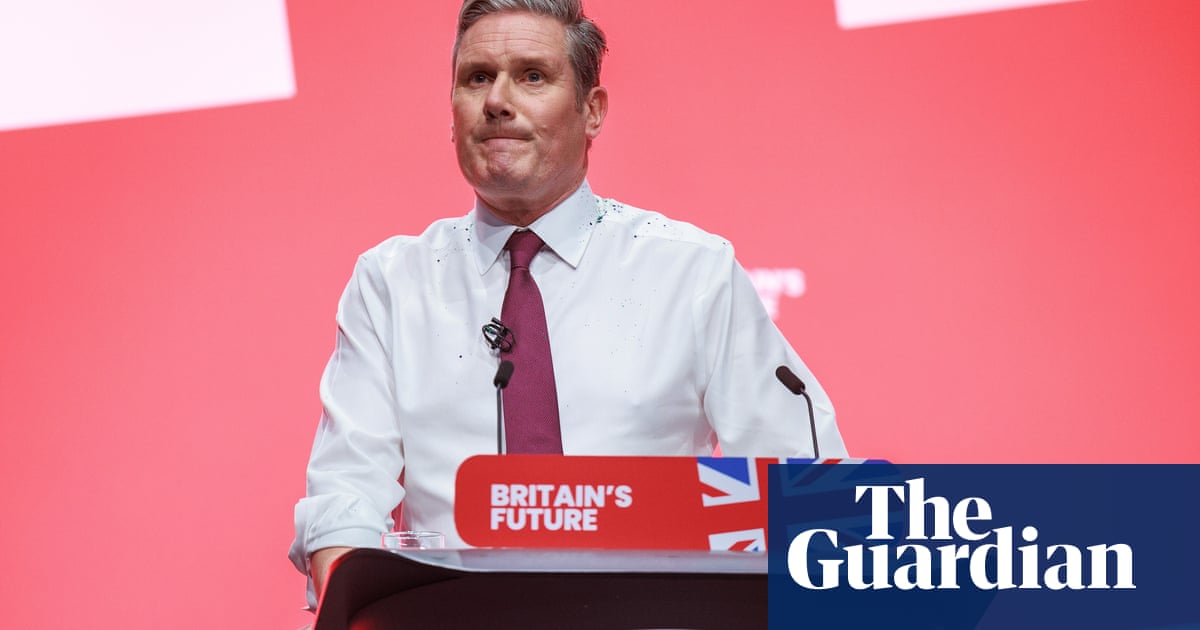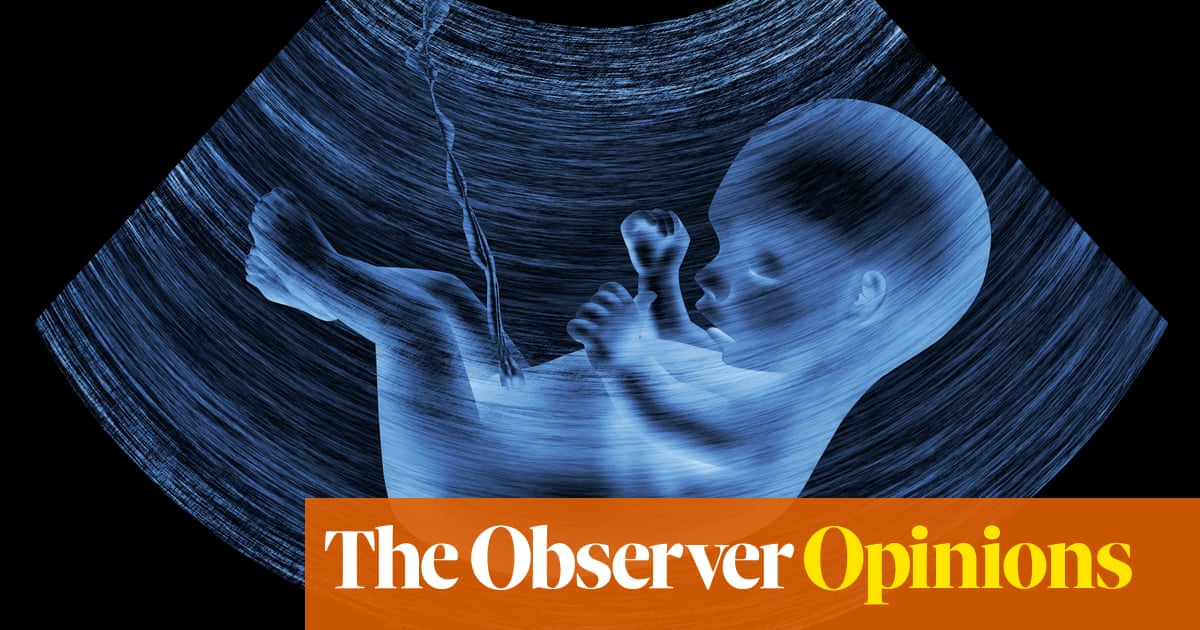
Clad in yellow hi-vis jackets on a picket by a busy Coventry layby, striking bin-lorry drivers wave and raise fists every time a passing vehicle honks in support, which is frequent. History weighs on the minds of the strikers. An engineering and carmaking hub known as “motor city” and the birthplace of the iconic trade union leader Thomas Mann, Coventry’s past cannot be disentangled from that of the labour movement, or a Labour party that has run the council for 43 of the past 49 years.
Yet one of the strikers, 60-year-old Peter Skerrett – a Labour member like his father before him – plucks his party card from his wallet, throws it in the mud and theatrically stamps on it. “How the hell can you keep paying for a political party that supposedly aspires to help workers when they’re actually working against us?”
Seventy drivers are on strike against their employer, the Labour-run council, over what their union’s deputy convener Peter Randle tells me is over “fair pay for a fair day’s work”. But this is a dispute with implications that go far beyond this West Midlands city of 350,000 people. These drivers are represented by the Unite union, and if Labour’s masters were expecting some respite after veteran organiser Sharon Graham succeeded Len McCluskey as general secretary last year, they have miscalculated. She has already threatened to cut Unite’s national funding to Labour over the Coventry dispute – and bear in mind the union is the cash-strapped party’s biggest donor – and she shows no undue sentimentality about the party. “The fact is the council is a bad employer, and I treat all bad employers the same,” she tells me.
Macho briefings from Keir Starmer’s team haven’t impressed her either. “We would have hoped that Unite would have got the message that the Labour party is under new management,” they told journalists. “Well, so is Unite,” she says, with a twinkle. Since she became general secretary four months ago, Unite has won 49 disputes: Graham intends to add Coventry to the tally.
The Coventry dispute foreshadows more to come. Even before the pandemic, wages were stagnating, and in the last quarter, real-terms pay was 0.8% down on a year earlier. It is in this context that Graham seeks “a rebirth of the trade union movement”, with “unions as the vehicle for change”. That means slapping down the Bank of England governor Andrew Bailey (paid well over half a million pounds a year) who demanded “wage restraint” from workers. “Why should the Bank of England governor, a rich man, be telling workers to have pay restraint?”, she says, somewhat incredulously. At the core of her leadership is a belief that Unite’s political strategy over the last decade – to focus on remoulding Labour into a vehicle for radical transformation – has failed, and now industrial struggles must take precedence.
Coventry may offer both an insight into what Starmer’s Labour represents, and what response it may provoke if it secures power. When I meet George Duggins, Coventry’s Labour council leader, he is in unrepentant mood. The council has distributed inflammatory anti-strike leaflets, claiming bin-lorry drivers are paid up to £52,000. All the drivers I meet on the picket line are on between £24,000 and £27,000, and have the payslips to prove it. The result? Earlier in the strike, drivers were subjected to shouts of “greedy bastards” from members of the public; one striker has had his family car’s tyres slashed. But Duggins doubles down, producing a spreadsheet suggesting one driver is indeed paid this amount: he would have to work 11 hours a day, 7 days a week to make that sort of money, and no other driver earns anywhere near it.
So why use that example? Duggins is indignant when I compare this approach to Tories seeking out exceptional examples of benefit claimants to justify rolling back the welfare state. But can he see why such leaflets fuel abuse? “I’ve made it clear that as far as I’m concerned, abuse will not be tolerated and if there’s physical abuse then we will prosecute.”
The core dispute is over which pay grade should be applied to the drivers, and here Duggins believes he has an ace to play. They can’t settle, says Duggins, because the council has determined that drivers have a grade 5 job, and it therefore can’t upgrade them to grade 6 “because it breaches the Equality Act”, which will lead them being inundated with other pay claims costing millions of pounds. “That is just nonsense, absolute nonsense,” says Graham. Her union believes the council has altered the job description to downgrade drivers, and notes their counterparts in Birmingham are being paid the rate that is being asked for. “There haven’t been any equal pay claims there, but if they are suggesting they’re shortchanging other workers for the job that they do well, they should not be doing that.” To Unite’s fury, the council leader and his fellow councillors have refused to personally attend any of the negotiations.
That councils such as Coventry have suffered devastating government cuts is undeniable, and that imposes painful spending dilemmas. But the bin-lorry drivers also have increasingly painful dilemmas about how they spend their pay packets as prices surge. When Starmer was interviewed by a local journalist, he scoffed at the idea a strike in Coventry should “influence relations between the Labour party and its trade unions”. The insinuation was clear – why should a local dispute in Coventry, of all places, impact national politics? But this is a grave error. The hardship suffered by workers here is being experienced across the country: it is a national issue.
Here is an opportunity for Labour to turn “levelling up” into a phrase of substance by working with union leaders like Sharon Graham to raise wages and improve working conditions in the UK. What a tragedy to waste it.
Owen Jones is a Guardian columnist












